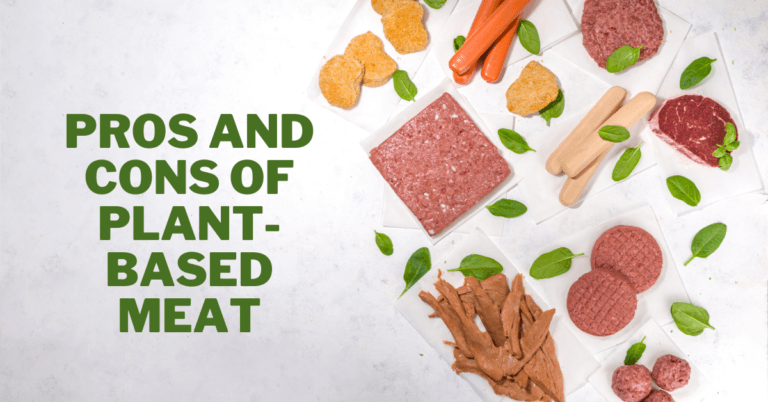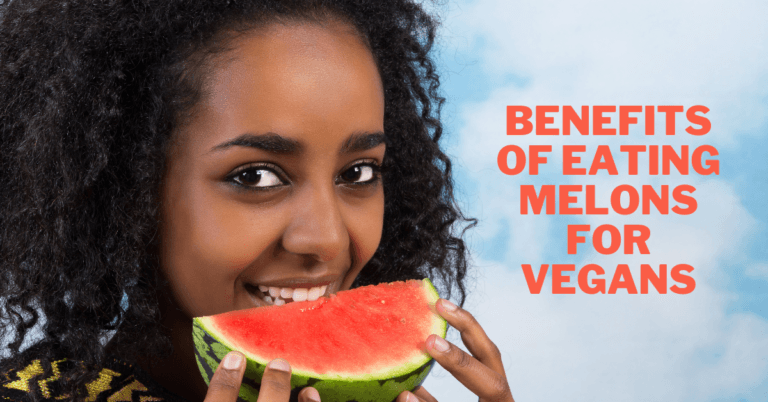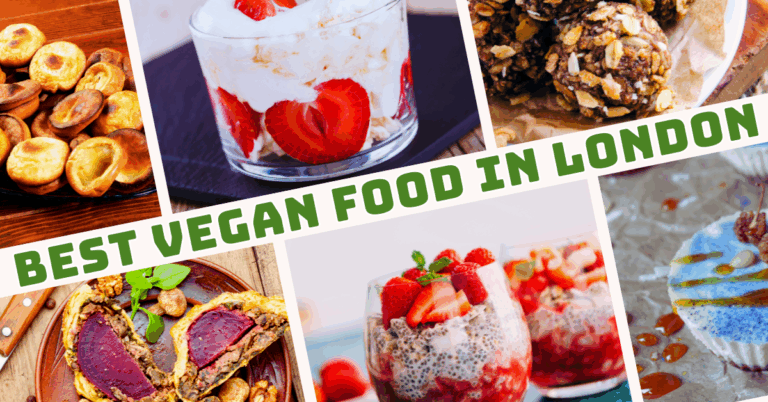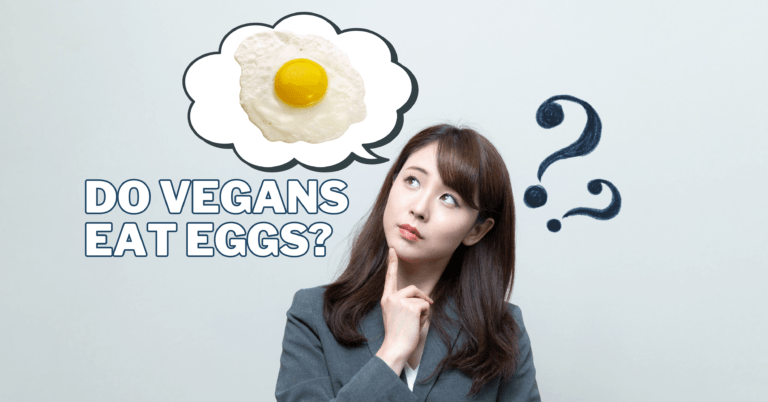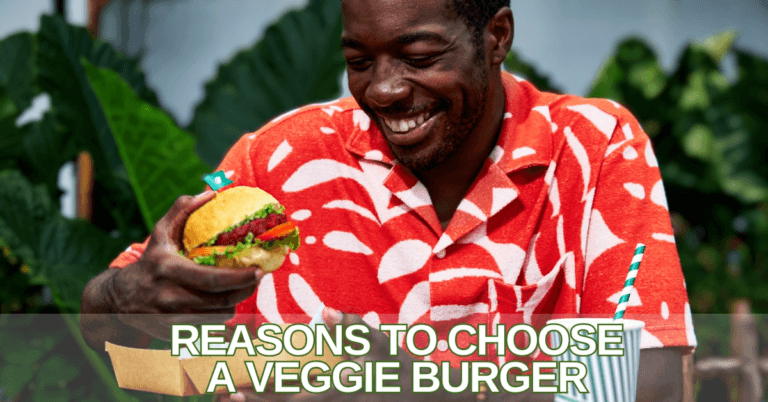Unhealthy Vegan Food Options
Unhealthy Vegan Food Options
While a vegan diet is often associated with health and sustainability, it's important to recognize that not all vegan foods are automatically nutritious.
Like any dietary pattern, the health of a vegan diet depends on one's choices. While plant-based diets are generally abundant in vitamins, minerals, and fiber, some vegan foods can be considered less healthy due to their high levels of processed ingredients, added sugars, and unhealthy fats.
In this article, we will explore some examples of unhealthy vegan food options that individuals should be cautious about consuming in excess.
Understanding that being vegan doesn't automatically equate to a healthy diet is crucial, and making informed choices is essential to maintain overall well-being.
By being aware of the potential pitfalls, vegans can ensure they nourish their bodies with nutritious plant-based foods while minimizing less healthy options.
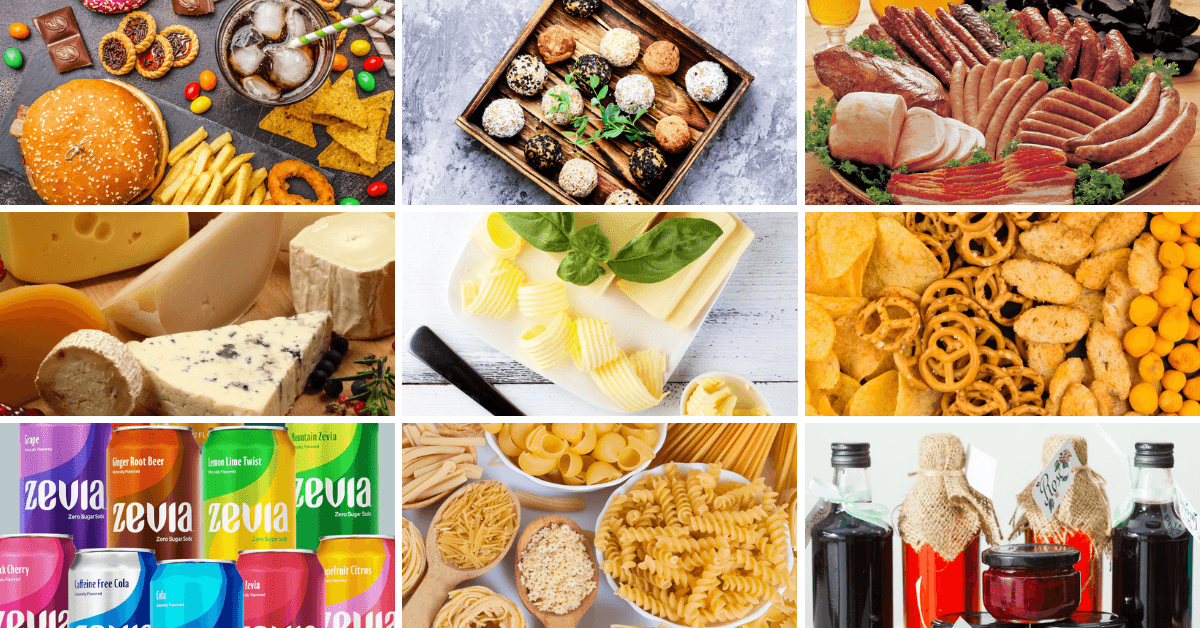
Exploring The List Of Unhealthy Vegan Food Options
While veganism is becoming increasingly popular, it's important to understand that not all vegan cuisine is equally healthy.
Many vegan food options can still be considered unhealthy, even though a well-planned vegan diet can be immensely nourishing and healthful.
Like any other diet, making thoughtful choices and prioritizing whole, nutrient-dense foods is crucial to ensure you get the best out of a vegan lifestyle. Here are the vegan junk foods list:

1. Vegan Junk Food
Vegan junk food, although appealing and convenient, may only sometimes be the healthiest choice.
While it's fantastic to have plant-based alternatives to satisfy cravings for familiar comfort foods, it's essential to recognize that many of these options are heavily processed and lack the nutritional benefits of whole, unprocessed plant foods.
Vegan burgers and sausages made from processed soy or wheat proteins can be high in sodium, saturated fats, and additives.
The same is true of many vegan pastries and ice creams, which are loaded with sugar substitutes and unhealthy fats that can cause weight gain and increase your chance of acquiring chronic diseases.
Regularly indulging in these vegan junk foods without balancing them with whole foods like fruits, vegetables, and whole grains can compromise the overall nutritional quality of a vegan diet.
To maintain a healthy vegan lifestyle, limiting the consumption of highly processed vegan junk food and incorporating nutrient-rich whole foods into your diet is essential.
Opt for homemade versions of favorite treats using whole-food ingredients, or enjoy these vegan treats in moderation as occasional treats rather than daily staples.

2. Sugary Vegan Treats
Sugary vegan treats can be just as tempting as their non-vegan counterparts, but it's essential to be mindful of their impact on overall health.
While it's wonderful to have plant-based options for satisfying sweet cravings, many vegan cookies, cakes, and pastries are made with refined sugars and processed flours, lacking essential nutrients in whole grains and natural sweeteners.
Regular consumption of these sweet delicacies may cause a blood sugar surge, followed by crashes that leave you feeling worn out and yearning for more sugary meals.
Additionally, the excessive consumption of sugary treats can contribute to tooth decay and weight gain, as these treats are typically calorie-dense and offer little nutritional value.
To enjoy the occasional vegan sweet treat without compromising health, opt for homemade versions using healthier sweeteners like maple syrup, agave, or dates, and experiment with whole-grain flours or alternative flours like almond or coconut flour.
Incorporating more naturally sweet foods like fruits into your diet can also help satisfy your sweet tooth in a more nutritious way.
Moderation is key when it comes to sugary vegan treats, and balancing them with a well-rounded diet of whole, nutrient-dense plant foods will contribute to a healthier and more sustainable vegan lifestyle.
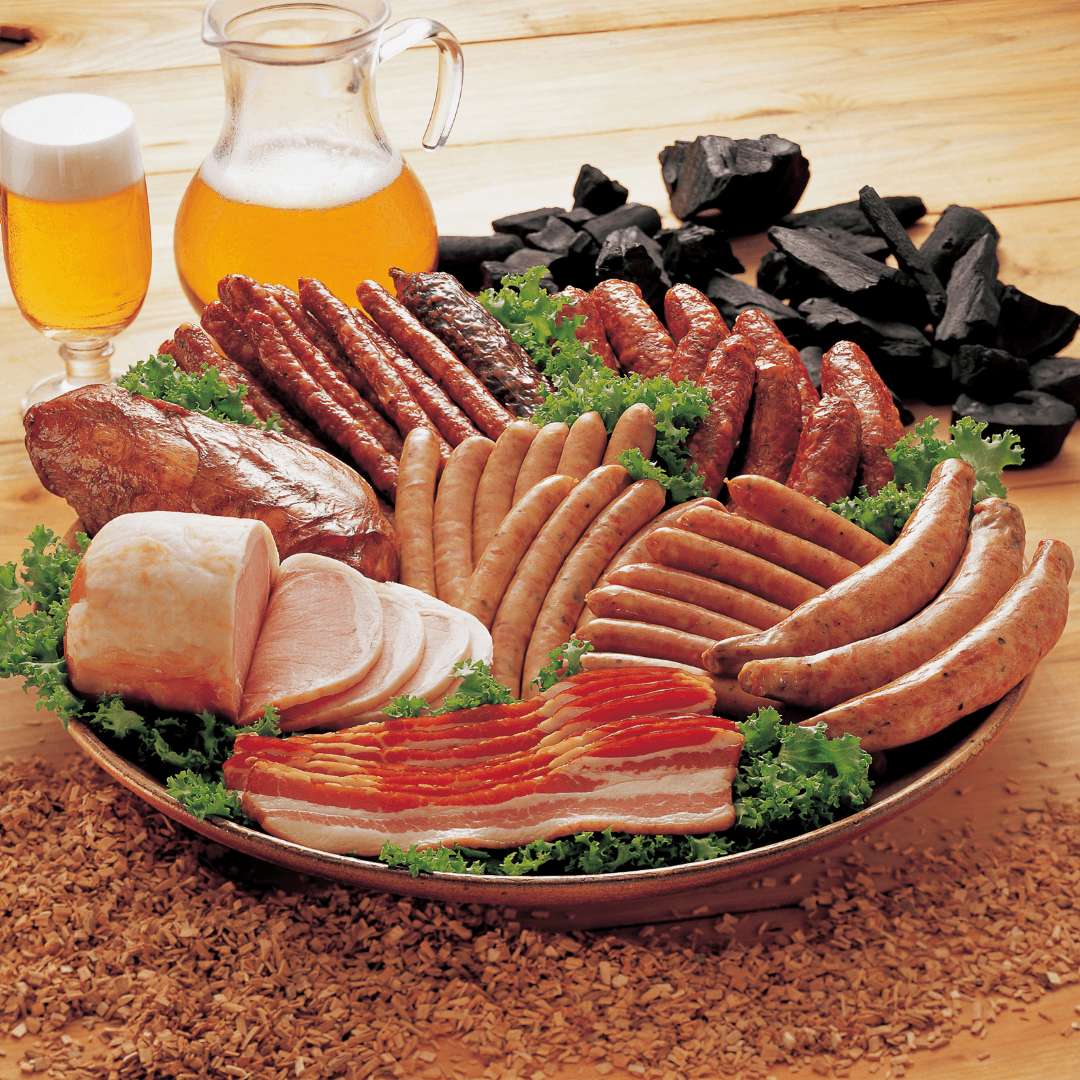
3. Vegan Processed Meats
Vegan processed meats have gained popularity as convenient substitutes for traditional animal-based products, but it's crucial to be aware of their nutritional content.
While they may be free from animal ingredients, many processed vegan meats are heavily processed and loaded with sodium, preservatives, and artificial additives to mimic the taste and texture of meat.
High blood pressure and an increased risk of heart disease can result from excessive salt intake.
Additionally, some processed vegan meats contain saturated fats and unhealthy oils, which can harm cardiovascular health when consumed in large amounts.
Instead of relying on processed vegan meats as the main protein source, focusing on whole plant-based foods like legumes, tofu, tempeh, and seitan provides ample protein, fiber, vitamins, and minerals without the added sodium and unhealthy additives.
By incorporating a variety of whole foods into your diet, you'll enjoy a more diverse and nutrient-rich range of nutrients that promote overall well-being.
If you still want the occasional vegan meat substitute, read the labels and choose products with lower sodium and minimal additives.
Ultimately, the key to a healthy vegan diet is prioritizing whole, unprocessed plant foods to support optimal health and nutrition.
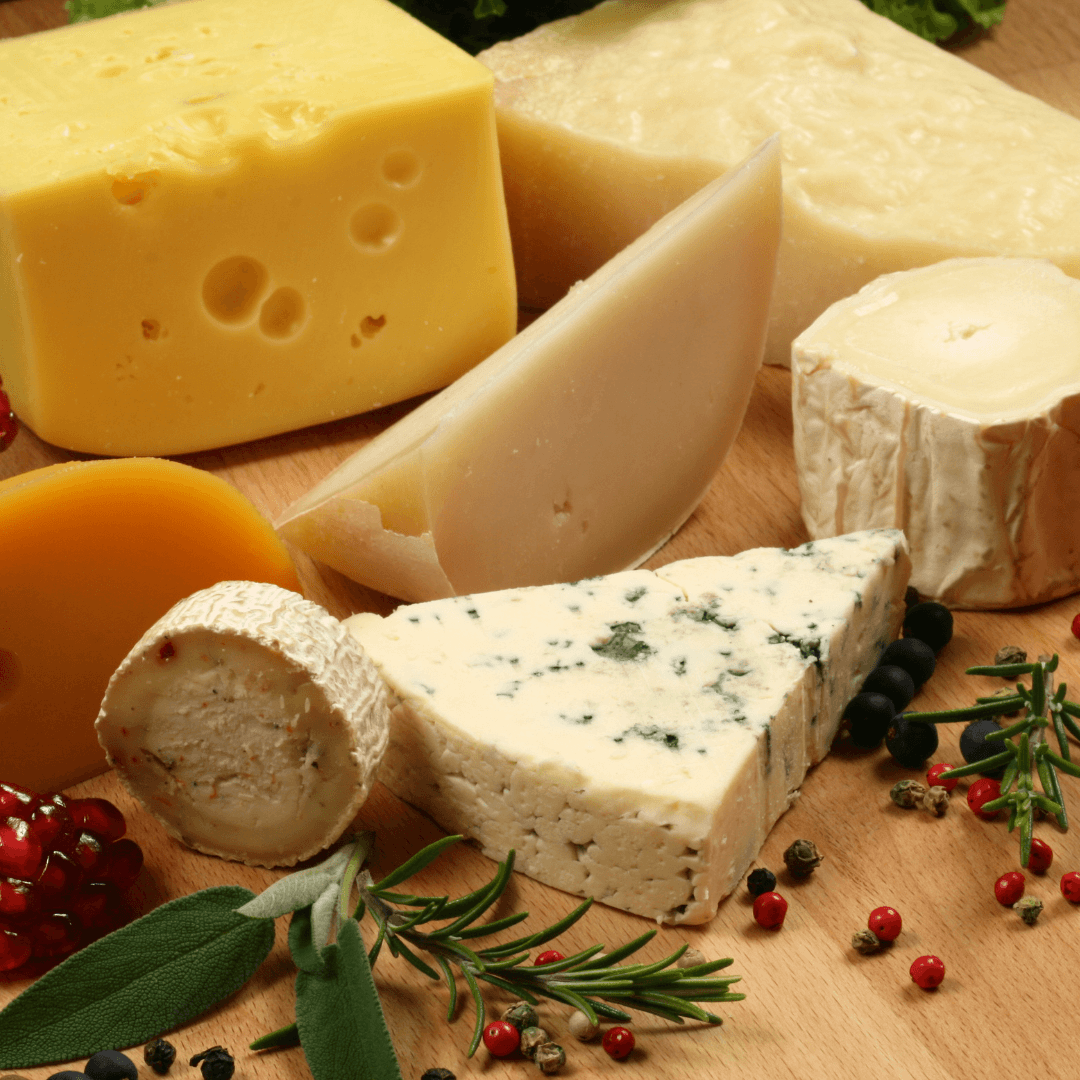
4. Vegan Cheese
Vegan cheese has become increasingly popular among those following a plant-based diet or looking to reduce their dairy consumption.
While some excellent vegan cheese options are made from natural ingredients like nuts, seeds, and tofu, not all alternatives are equal.
Some store-bought vegan cheeses are highly processed and loaded with unhealthy fats, sodium, and additives to mimic the taste and texture of dairy cheese.
These processed vegan cheeses may not offer the same nutritional benefits as whole plant foods and can contribute to an excessive intake of unhealthy fats and sodium.
When choosing vegan cheese, it's essential to read labels and opt for products with simpler, more natural ingredient lists.
Look for options from wholesome ingredients like nuts, seeds, and plant-based oils.
Better yet, consider making vegan cheese using simple and nutritious ingredients at home.
Countless online recipes use nuts, nutritional yeast, herbs, and spices to create flavourful and healthy vegan cheese alternatives.
By being mindful of the ingredients and choosing less processed options, you can still enjoy the occasional vegan cheese as part of a balanced and health-conscious plant-based diet.
While vegan cheese can complement your meals, it's ideal to emphasize entire foods like fruits, vegetables, legumes, and whole grains as the basis of your plant-based eating habits.
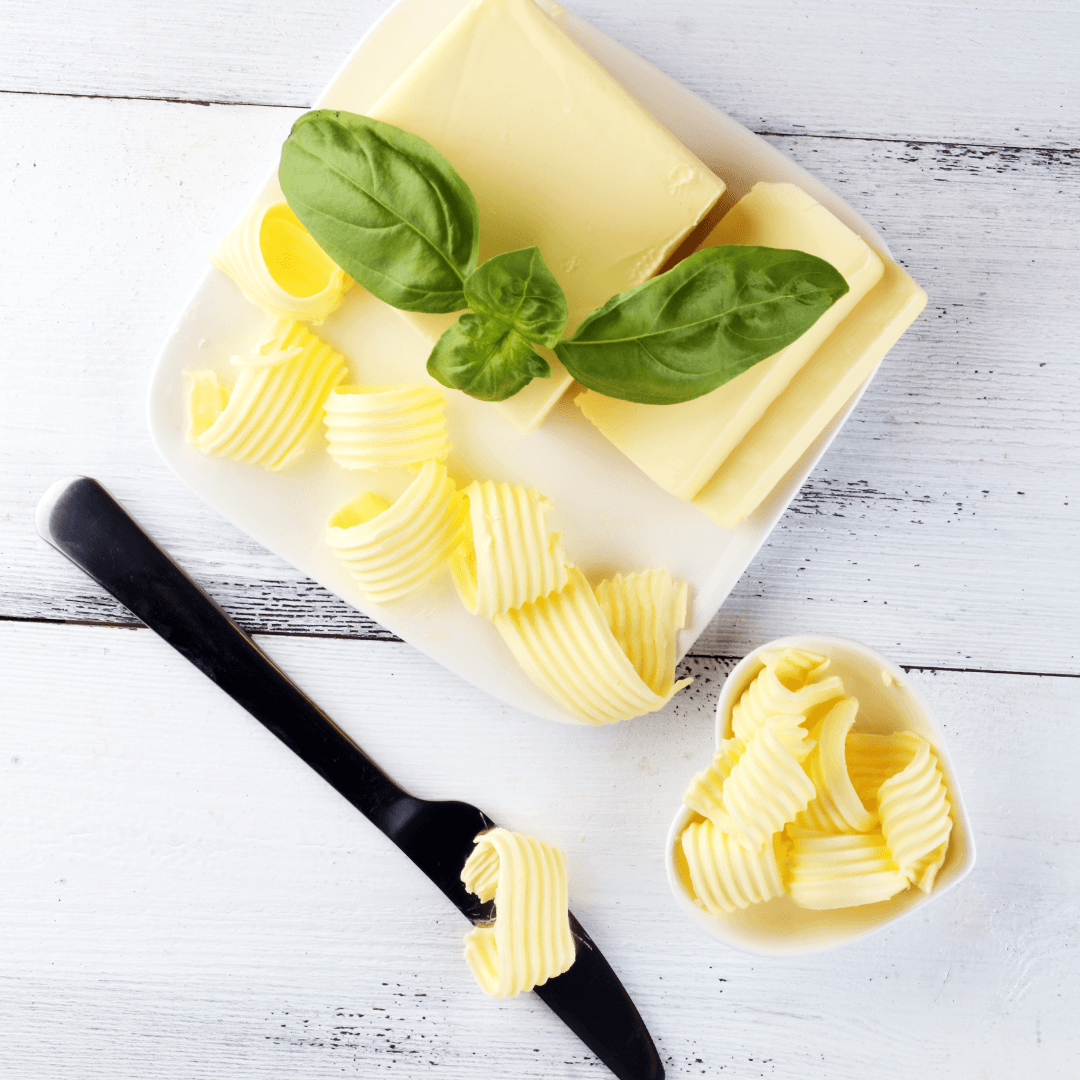
5. Vegan Butter And Margarine
Vegan butter and margarine are popular alternatives for those following a plant-based diet or looking to reduce their intake of animal fats.
However, not all vegan butter substitutes are created equal regarding nutritional value.
Some commercially available vegan butter and margarine could include palm oil or hydrogenated oils, which might include a lot of trans fats.
Trans fats increase the risk of heart disease since they elevate levels of bad cholesterol (LDL cholesterol) and lower levels of good cholesterol (HDL cholesterol).
Environmental issues have arisen due to palm oil manufacturing, which has also been linked to habitat damage and deforestation.
To make healthier choices, it's essential to read labels and look for vegan butter and margarine free from hydrogenated oils and palm oil.
Instead, opt for products made with healthier plant-based fats like olive oil, coconut oil, or avocado oil.
Use whole foods like mashed avocado or nut butter as spreads or toppings. Homemade alternatives can be healthier and offer more nutritional benefits than store-bought options.
Additionally, more beneficial fats in cooking and baking, such as olive or coconut oil, can provide a more nutritious and flavorful result.
By making conscious choices about the fats you use in your food preparation, you can still enjoy butter and margarine's delicious taste and texture without compromising your health or the environment.
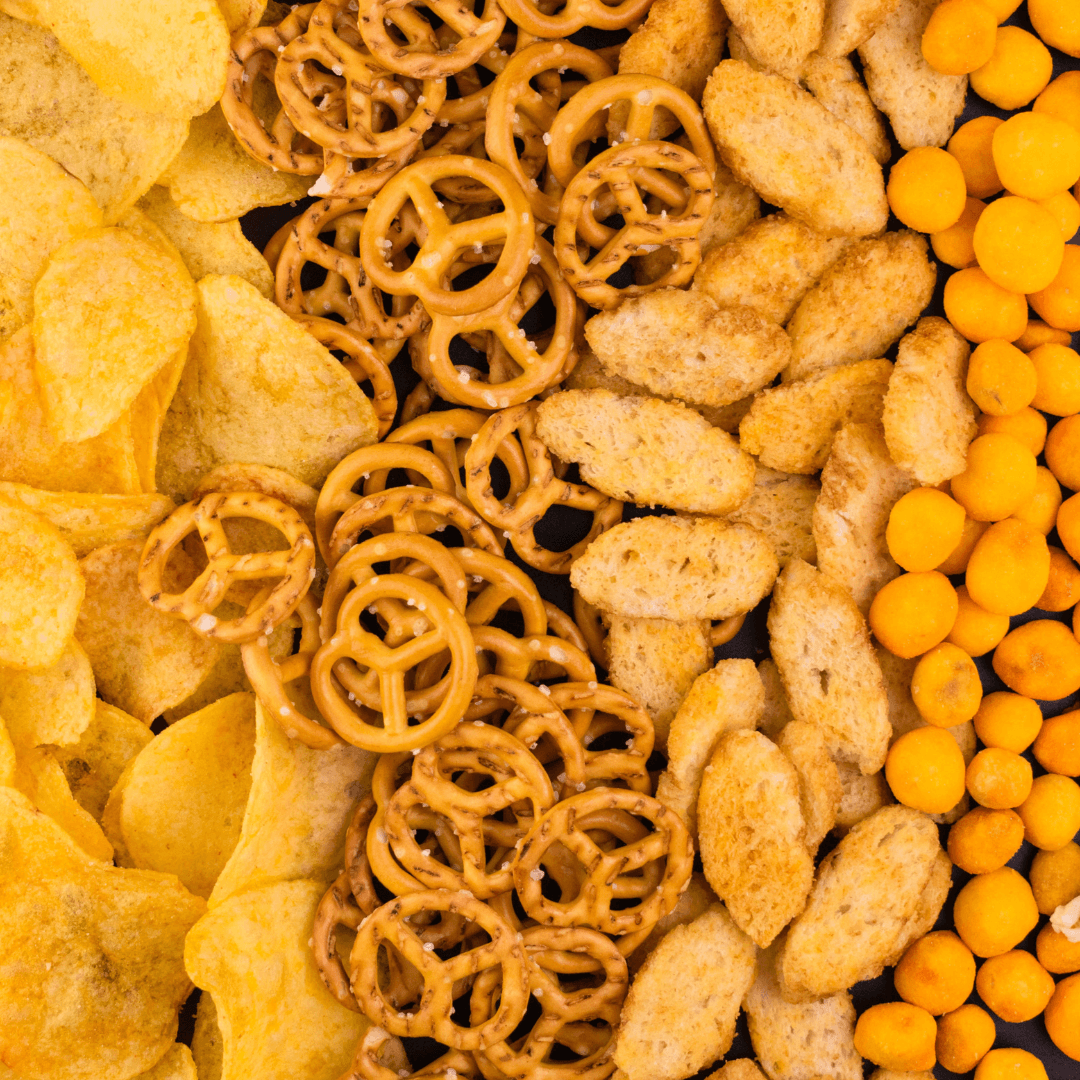
6. Vegan Snack Foods
Vegan snack foods offer various choices for those following a plant-based diet, but it's essential to be mindful of their nutritional content.
Many commercially available vegan snacks, such as chips, pretzels, and popcorn, can be highly processed and loaded with unhealthy ingredients.
These snacks often contain excessive amounts of salt, unhealthy fats, and artificial flavours, which can contribute to various health issues if consumed regularly.
To make healthier snack choices, opt for whole and minimally processed options. Air-popped popcorn, for example, is a nutritious and satisfying snack that is low in calories and high in fiber.
Roasted nuts, like almonds or cashews, provide healthy fats, protein, and essential nutrients.
Whole-grain crackers with hummus or other plant-based dips offer a delicious and wholesome snacking option.
Additionally, fresh fruits and vegetables, such as carrot sticks, celery, or apple slices, can be enjoyable and nutritious snacks.
If you enjoy the convenience of store-bought snacks, look for options with minimal ingredients and lower sodium content.
Reading nutrition labels can help you make informed choices about your snacks. Preparing homemade vegan snacks is another great way to ensure you eat healthily.
You can make your trail mix with nuts, seeds, and dried fruits or bake homemade veggie chips using a variety of vegetables.
You can satisfy your cravings by choosing healthier vegan snack alternatives while nourishing your body with nutritious foods.
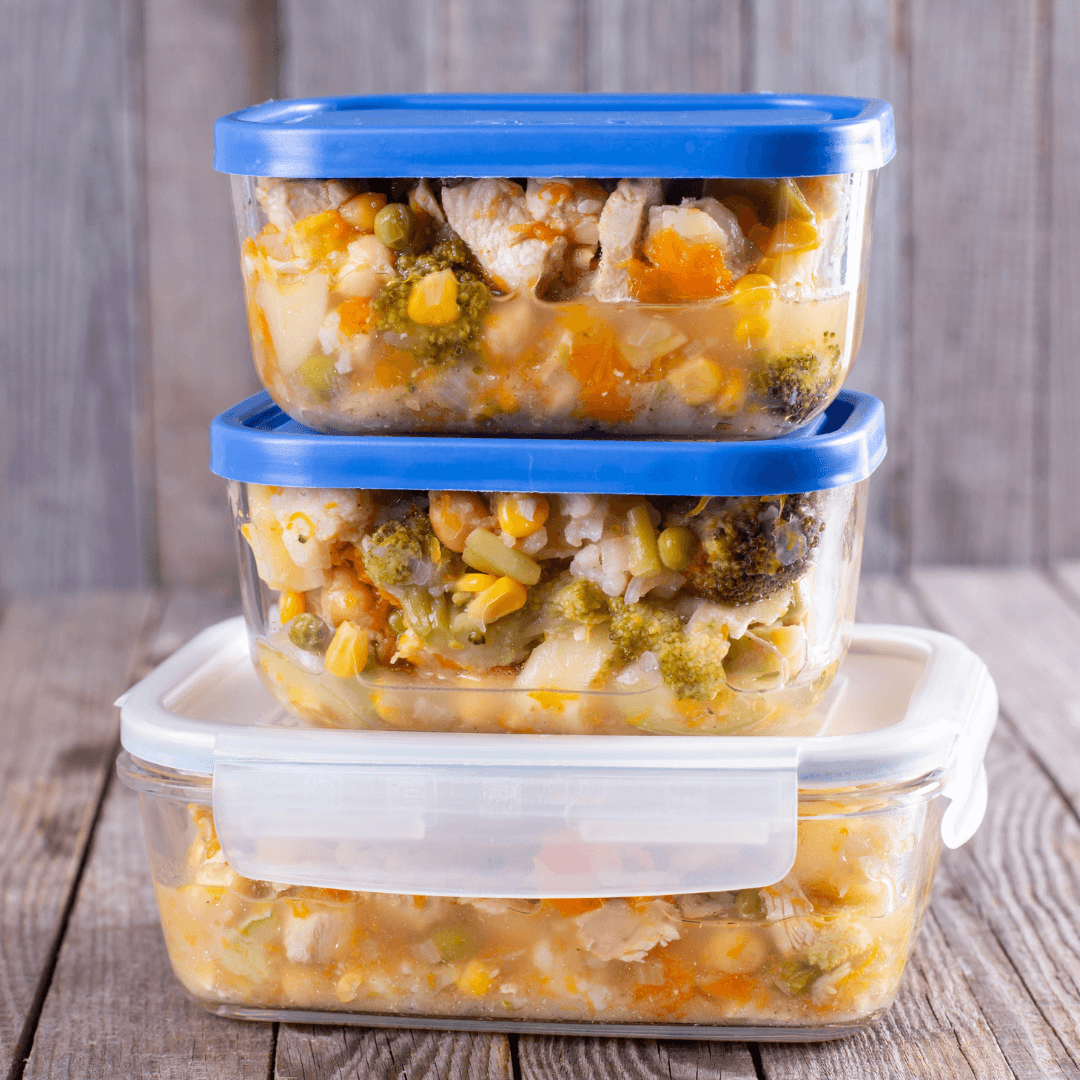
7. Vegan Ready Meals
Vegan-ready meals have gained popularity among those seeking quick and easy plant-based options, but it's essential to be aware of their potential downsides.
Pre-packaged vegan meals frequently have high sodium content, are highly processed, and may also have various additives to improve flavour and extend shelf life.
Consuming these meals regularly can lead to excessive sodium intake, contributing to hypertension and other health issues.
Some of these ready meals may also lack essential nutrients and fiber, as they often prioritize convenience over nutritional value.
Making homemade vegan meals with fresh and whole ingredients is a preferable alternative.
Cooking at home gives you better control over the ingredients used in your dishes and tailor them to suit your taste and dietary preferences.
It also allows you to experiment with various herbs, spices, and plant-based proteins to create delicious and nutritious meals.
Preparing meals from scratch can be enjoyable and rewarding, allowing you to incorporate multiple fruits, vegetables, whole grains, legumes, and nuts into your diet.
These entire food ingredients offer essential vitamins, minerals, and dietary fiber, supporting overall health and well-being.
While it's understandable that convenience is a priority for many people, trying to cook at home more often can significantly benefit your health.
If time is a concern, consider meal prepping on weekends or choosing simple and quick recipes that can be prepared quickly.
By focusing on homemade meals made with fresh and wholesome ingredients, you can enjoy the convenience of quick and nutritious vegan options while promoting your overall health and well-being.
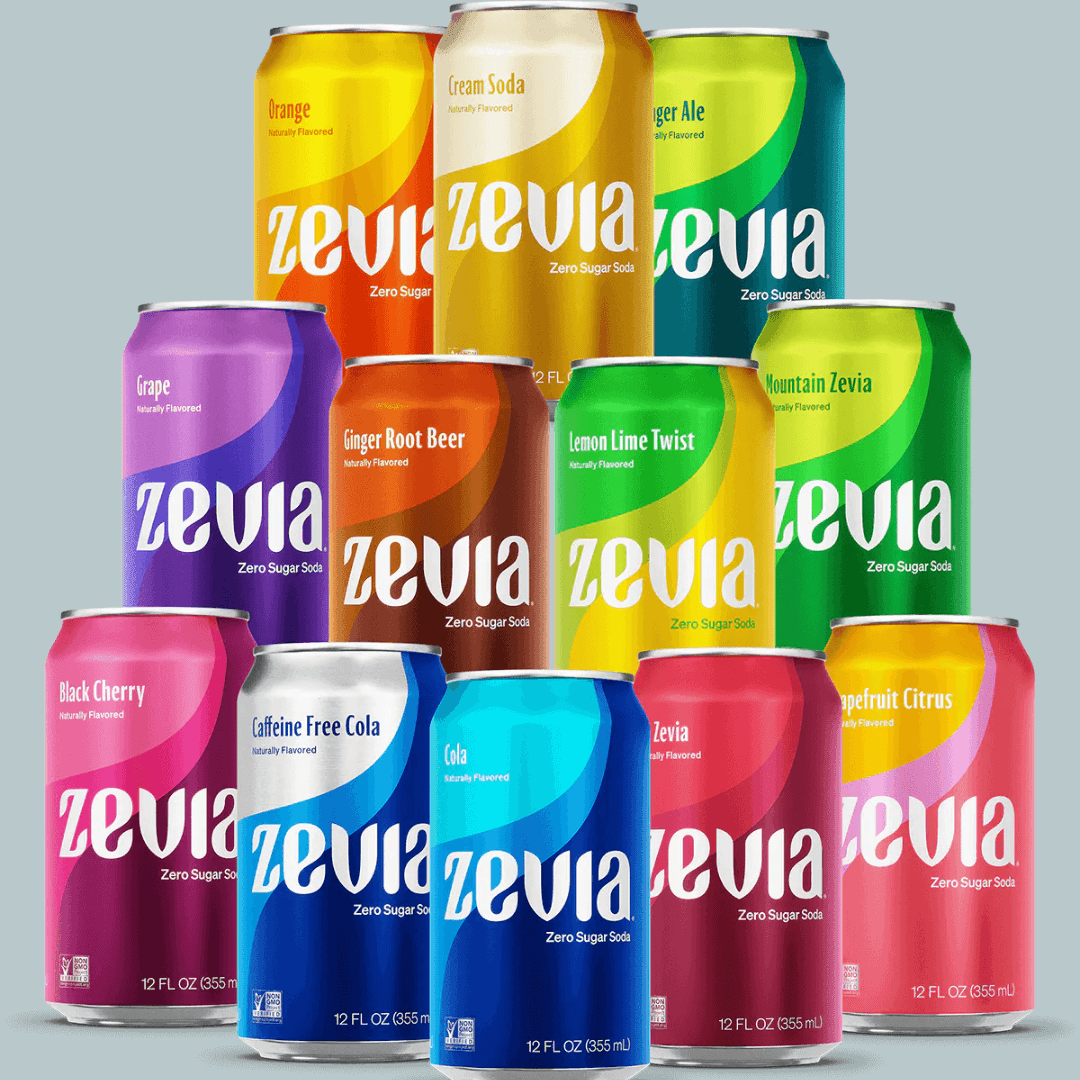
8. Vegan Energy Drinks And Sodas
Vegan energy drinks and sodas have become increasingly popular as people embrace plant-based diets.
However, it's essential to be cautious about their potential health implications. While these beverages may be free from animal-derived ingredients, they are often high in sugar and caffeine, adversely affecting health when consumed in excess.
Tooth decay, type 2 diabetes, and obesity are just a few health problems associated with excessive sugar consumption.
Energy crashes and disturbed sleep patterns can also result from the high caffeine level in energy drinks, which harms general health.
Many vegan energy drinks and sodas also contain artificial flavours, colours, and preservatives, which may not align with the principles of a clean and whole-food-based vegan diet.
These synthetic ingredients have been associated with various health concerns, including allergic reactions and potential adverse effects on behaviour in some individuals, especially children.
Instead of relying on energy drinks and sugary sodas for a pick-me-up, opt for healthier and more natural alternatives.
Choose water, herbal teas, or homemade fruit-infused water as refreshing and hydrating options.
If you need an energy boost, consider incorporating whole foods like fresh fruits, nuts, and seeds into your diet, providing a sustainable and nutrient-rich energy source.
Moderation is important with all foods and beverages. It's okay to indulge in a vegan energy drink or soda occasionally.
Still, limiting their consumption and focusing on nourishing your body with whole, plant-based foods to support your overall health and well-being is best.
You can maintain a healthy and vibrant vegan lifestyle by being mindful of your beverage choices and prioritizing a balanced and nutritious diet.
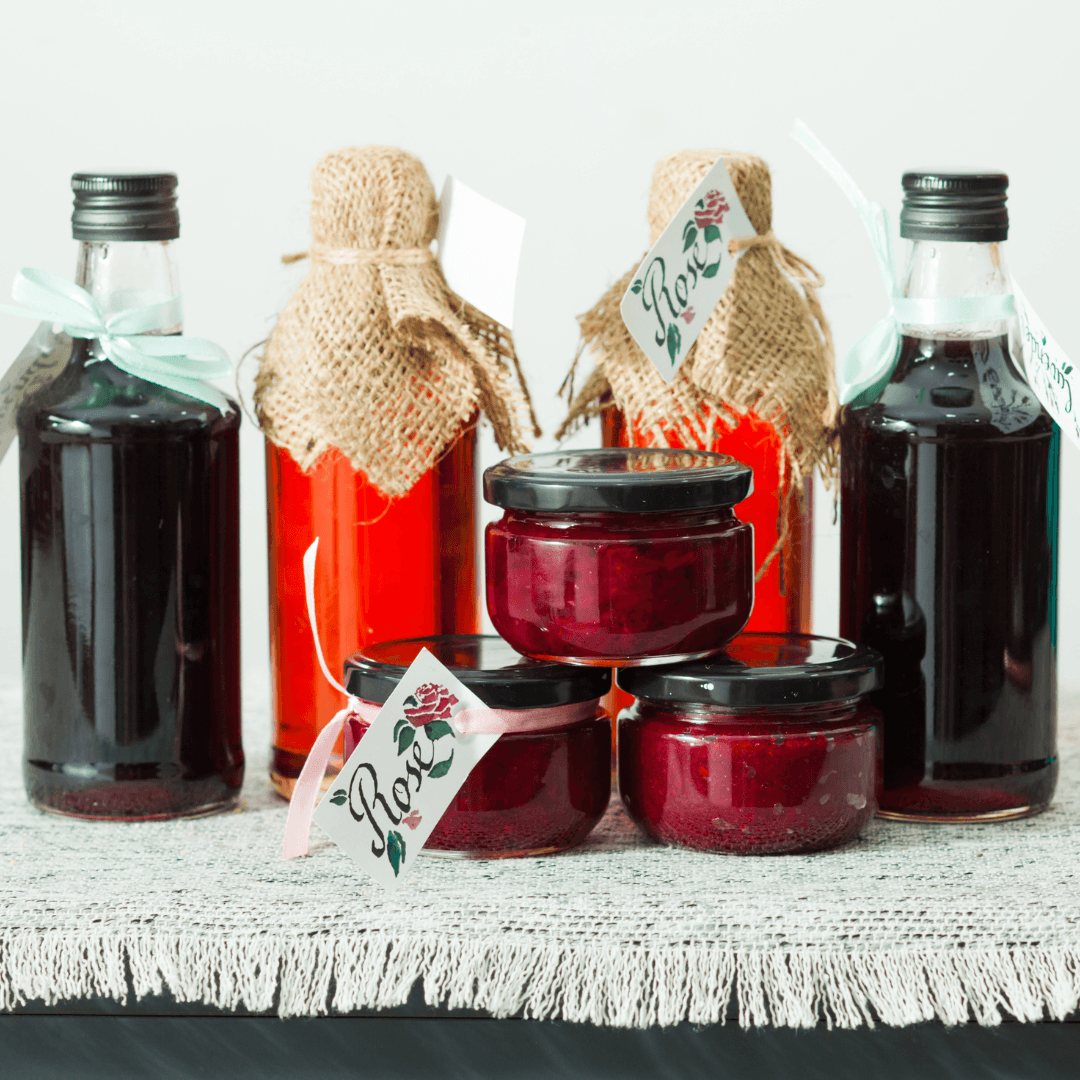
9. Vegan Creamers And Flavoured Syrups
Vegan creamers and flavoured syrups are popular choices for those seeking dairy-free options to enhance the taste of their coffee and beverages.
However, awareness of these products' ingredients is essential, as some may not align with a health-conscious vegan diet.
Many commercial vegan creamers and flavoured syrups contain artificial sweeteners, high-fructose corn syrup, and other unhealthy additives to enhance flavour and extend shelf life.
These additives can negatively affect health, contributing to weight gain, insulin resistance, and metabolic issues.
Consider natural and whole-food alternatives instead of relying on processed vegan creamers and syrups.
Plant-based options like almond, oat, or coconut milk can be excellent choices to add creaminess and flavour to your coffee or beverages without added sugars or artificial ingredients.
You can also experiment with making your flavoured syrups using natural sweeteners like maple syrup, agave nectar, or date syrup combined with natural flavourings like vanilla extract or cocoa powder.
By being mindful of the ingredients in your products and making conscious choices to prioritize whole and unprocessed foods, you can enjoy your favourite beverages without compromising your commitment to a healthy vegan lifestyle.
Taking a more natural and wholesome approach to enhance the taste of your coffee and beverages will benefit your health and align with the principles of a clean and nutritious vegan diet.
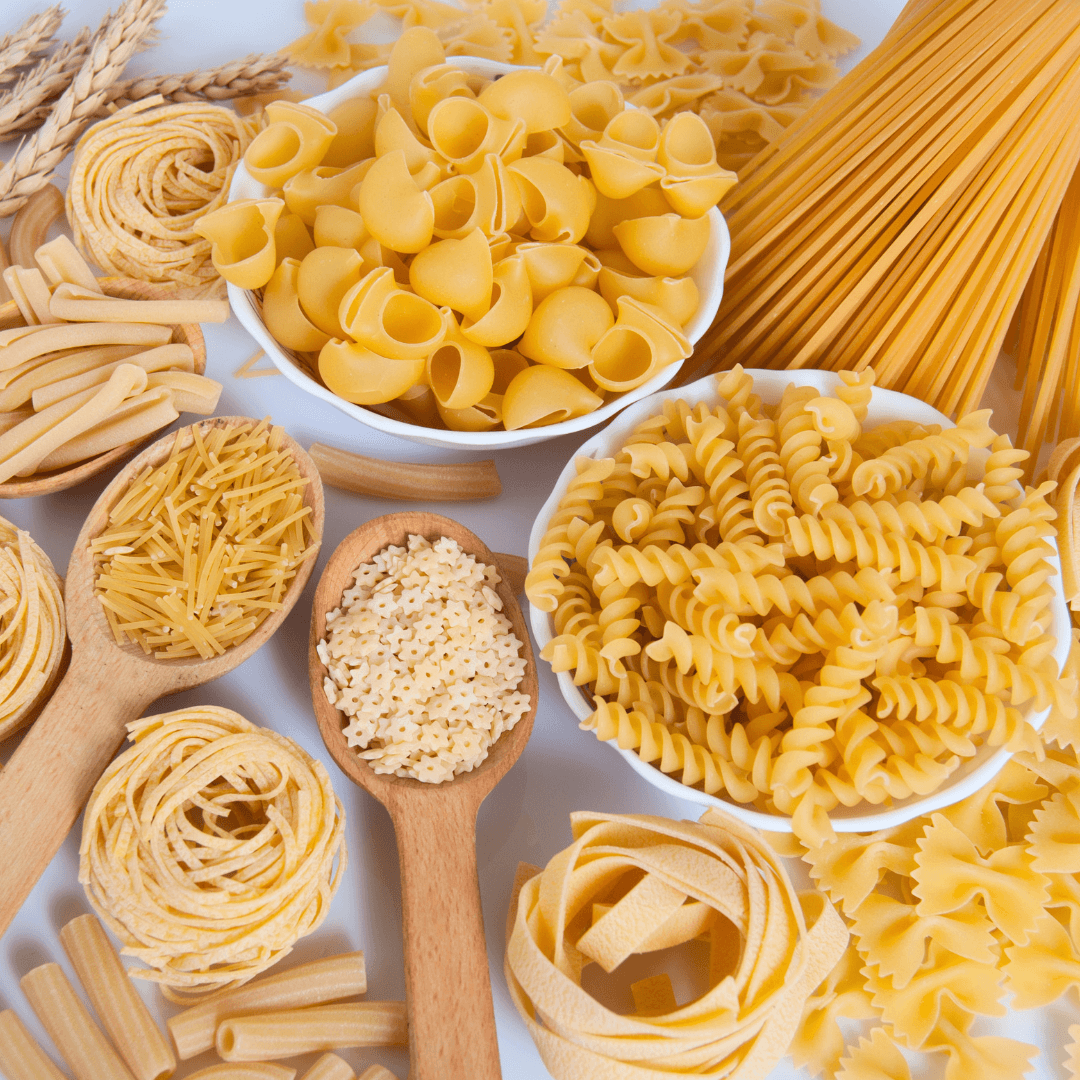
10. Vegan Packaged Pasta And Noodles
Vegan packaged pasta and noodles can be convenient and satisfying, but it's essential to be mindful of their nutritional content.
While many traditional pasta and noodle varieties are naturally vegan, some packaged options may contain unhealthy additives, artificial flavours, or excessive sodium to enhance taste and shelf life.
When choosing packaged pasta and noodles, opt for whole-grain varieties whenever possible, as they are higher in fiber and nutrients than refined options.
To ensure you're making healthier choices, take the time to read ingredient labels carefully.
Look for products with minimal and recognizable ingredients, avoiding those with added preservatives, artificial colours, or high sodium levels.
Whole-grain pasta and noodles made from whole wheat, brown rice, or quinoa can provide more nutritional value and support your overall well-being.
Make your pasta or noodles using whole-food ingredients for an even healthier and more nutritious option.
Homemade pasta allows you to control the elements and customize the flavours according to your preferences.
You can experiment with plant-based flour, such as chickpea or buckwheat flour to create delicious and wholesome pasta and noodle dishes.
Conclusion
In conclusion, while a vegan diet can be incredibly nutritious and beneficial for our health and the environment, it's essential to be aware of the potential pitfalls of consuming unhealthy vegan food.
Like any other diet, a well-balanced and thoughtful approach is key to reaping the full benefits of a plant-based lifestyle.
By preparing homemade meals and snacks, we can have better control over our ingredients, ensuring that we nourish our bodies with wholesome and natural foods.
Incorporating a variety of colourful and nutrient-rich plant-based options into our diet can further enhance our overall health and well-being.
Ultimately, adopting a vegan lifestyle goes beyond just avoiding animal products; it's about embracing a more conscious and compassionate way of living.
By making informed choices and prioritizing our health, we can fully enjoy the benefits of a balanced and nourishing vegan diet while positively impacting our planet and all its inhabitants.
I trust you enjoyed reading the article on Unhealthy Vegan Food Options. Please stay tuned. There are more blog posts to come very shortly.
JeannetteZ
>>>Please click here to read my Vegan Travel Guides To World Destinations<<<
>>>Want To Learn How To Create Delicious, Cruelty-Free, Healthy AND 100% Vegan Meals? Try These Awesome Vegan Cooking Courses With A Free 7-DAY MEMBERSHIP<<<
Your Opinion Is Important To Me
Ideas? Thoughts? Questions? I would love to hear from you. Please leave me your questions, experiences, and remarks about the Unhealthy Vegan Food Options in the comments section below. You can also reach me by email at Jeannette@LivingTheVeganLifestyle.org.
>>>Please click here to read more about the Vegan Diet on Wikipedia<<<
Disclosure
This post may contain affiliate links. I earn from qualifying purchases as an Amazon Associate and other affiliate programs. Please read my full disclosure.
Here are some links to some of my favourite articles:
Vegan vs Vegetarian Is One Better Than The Other
Top Health Reasons To Go Vegan

